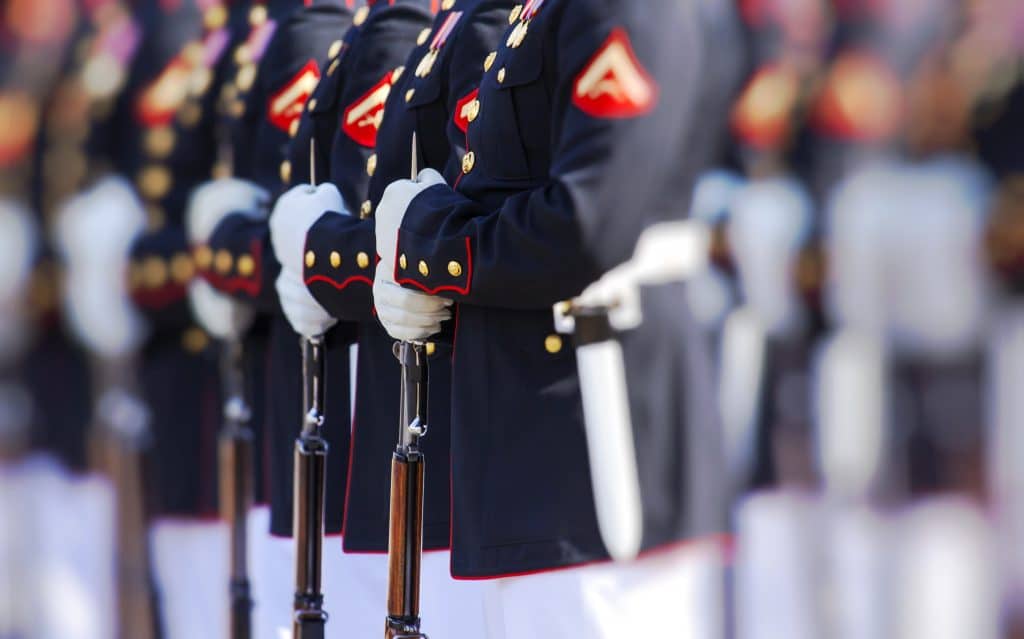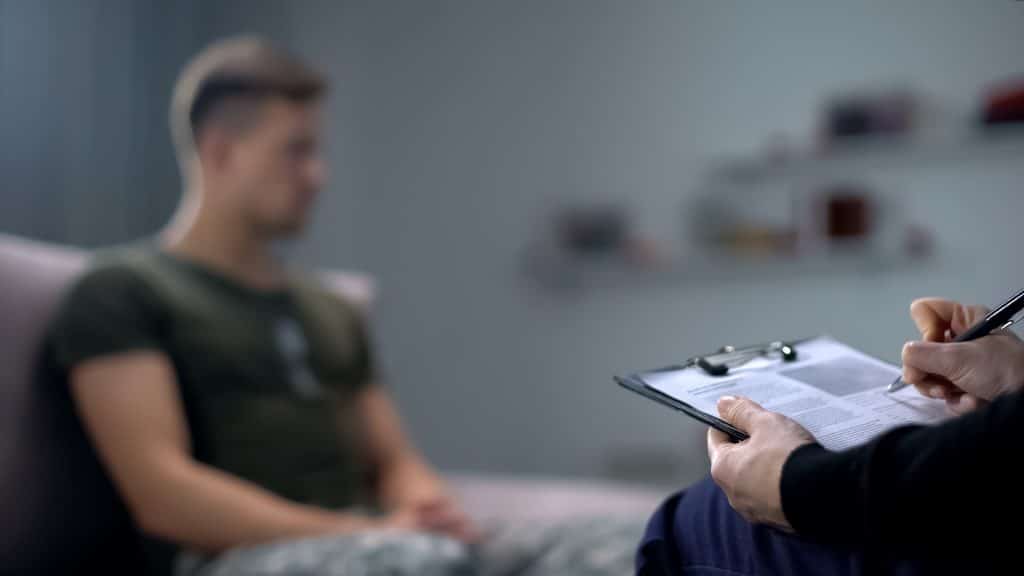Despite the fact that overall support for psychedelics legalization remains low, one thing the majority of Americans do agree on is that veterans should have access to the drugs, particularly for the treatment of PTSD, depression, and other mental health disorders. According to a poll released earlier this year by YouGov, and internet-based public opinion and data company, a total of 54% of Americans support this (60% democrats, 45% republicans, 54% independents).
And yet, veterans still cannot utilize these compounds. Not only that, but the men and women who served our country (the good ole’ U S of A), are being forced to travel across borders and overseas (on their own dime), to access these potentially life-saving treatments. To say that’s unfair, would be a gross and offensive understatement. Although clinical studies are underway and some areas in the US are beginning to decriminalize psychedelic drugs, for many, it’s too little too late.
What’s the Story?
The United States Department of Veterans Affairs (VA) is a cabinet-level executive branch of the federal government that is tasked with providing life-long healthcare services to military veterans at one of their many medical centers and outpatient clinics in the country. While the VA has helped veterans in countless ways, like with any government department, they are still lacking in many regards.

When it comes to psychedelic-assisted therapies, there’s even more to be desired. Currently, it’s impossible for veterans to access psychedelic-assisted therapies through the VA, which means they are forced to continue using ineffective and possibly dangerous medications, or seek psychedelic treatment options on their own.
Doing so can be risky and challenging in a variety of different ways. First of all, it’s expensive. Not only do patients have to pay for the treatment themselves, 100% out of pocket, but they also have to pay for travel arrangements which can include flights, hotels, rental cars, food, and other accommodations. This is simply not financially feasible for your average American.
It can also be dangerous. Usually, activity at psychedelic retreats and places of that nature go relatively smoothly, but problems can arise. Aside from possibly getting sick, there is a fair chance that a bad trip can occur, since the person is using powerful hallucinogens in an unfamiliar setting with unfamiliar people.
But all that aside, the main point here is that forcing veterans to leave the country for medical treatment, is just not right. Take former Navy SEAL, Marcus Capone, who spent almost 10 years unsuccessfully trying to manage PTSD and depression that developed from a mild traumatic brain injury. Following advice from a fellow SEAL, Capone began traveling to Mexico for Ibogaine therapy.
“The results were immediate”, Capone stated. “It [ibogaine] worked so fast, it was kind of scary,” he added. Other vets share similar stories, like Army Veteran Tom Slattery who didn’t see any improvements in his PTSD until he tried 5-MeO DMT for the first time. Or Army Veteran Phil Sussman, who has been traveling to Peru for ayahuasca ceremonies.
Because of this profound success, a handful of veterans have been launching non-profits in order to help other military veterans access psychedelic treatments for themselves. Capone and his wife operate one known as Veterans Exploring Treatment Solutions. A few other of note are Veterans Exploring Treatment Solutions and Heroic Hearts Project, both of which are also helping veterans get to different countries in Latin America for these therapies, as well as providing them with various resources for preparation and reintegration.
What is Post Traumatic Stress Disorder?
Posttraumatic stress disorder (PTSD) is a psychiatric disorder that can affect people who have witnessed or experienced some type of traumatic event. For a long time, the focus was on veterans with PTSD, which makes sense as it impacts them at a much higher rate than the general population. But anyone can suffer from PTSD, and it’s common after natural disasters, serious accidents, terrorist acts, and sexual assaults.
Thanks for making your way over. Subscribe to our Cannadelics Weekly Newsletter for regular updates straight to your email, along with great deals on awesome merch including marijuana flowers, vapes, edibles, smoking devices, and cannabinoid compounds. Check through the options, and pick what works best for you!
About 6 out of every 100 Americans will experience PTSD at some point in their lives. In the veteran population, that number is much higher. While it varies slightly based on age, time served, what war was fought, and other factors, it’s estimated that around 11-30 veterans out of every 100 have experienced PTSD.
People with PTSD may have very intense and highly disturbing thoughts related to the event that impacted them. This can play out as flashbacks, nightmares, sadness, fear, anger, anxiety, detachment, and aggression. These symptoms can last long after the traumatic event has ended, sometimes, they last forever. Because treatment options (successful ones, anyway) are severely limited, some people feel like the only way to mediate the symptoms is to avoid any possible triggers, a method that can really hamper one’s quality of life.
Psychedelics and PTSD
Over the years, psychedelics have proven themselves to be one of the most successful treatment options for many different mental health disorders. An overwhelming 82% percent of Americans are in favor of accelerating research on this front, but federal regulations have really been a stick in the wheel of progress here.
Out of the emerging studies that have been conducted over the last few years, one this is abundantly clear – psychedelics can be extremely effective at treating a myriad of mental health conditions. Clinical trials have shown us that when paired with psychotherapy/talk therapy, there were “positive and profound long-term outcomes for patients suffering from conditions such as depression and post-traumatic stress disorder (PTSD).”

The push for more research is so powerful that some states like Colorado and Connecticut, as well as a handful of individual cities, are starting the path to medical psychedelics legalization. Much of the momentum for these changes came from the testimony of military veterans who have been using hallucinogenic drugs on their own terms when they found that standard treatments were ineffective.
What’s great about decriminalization, is that people caught with psychedelics will no longer be treated like criminals. So people don’t have to worry about possessing a small amount of psychedelic drugs for personal use, but since they are still federally illegal, local decriminalization do absolutely nothing for advancing research efforts.
What’s more, even in the rare circumstances that people are granted early access to psychedelic treatments (as is the case in Connecticut with around 100 individuals participating in such programs), they’re still not covered by health insurance. Psychedelic-assisted therapy is very expensive, and not something that most low to middle income Americans could afford to do on a regular basis.
Final Thoughts
The fight for access to psychedelics therapy is in full swing, and we can largely thank our veterans for that. Whether they’re fighting for our freedom overseas or battling for our rights on the home front, the one thing we can all agree on is that they need our support. Get the word out, get involved with a grassroots organization, or just get out and vote for politicians who support progressive and reasonable drug reform. The tools are there, and so is the want and need for psychedelic legalization, we just need to work collectively as a united front, and we’ll see the changes we’ve been searching for. Happy Veteran’s Day.
Hello and welcome readers! We appreciate you making it over to Cannadelics.com; where we work hard everyday to bring you fully-rounded coverage of the growing cannabis and psychedelics spectrum. Hang out with us regularly to keep up with everything going on, and sign up for the Cannadelics Weekly Newsletter, so you’re never late on getting a story.
The post Mounting Frustration with VA as Veterans Seek Psychedelic Treatments Overseas appeared first on Cannadelics.
Via https://cannadelics.com/2022/11/11/mounting-frustration-with-va-as-veterans-seek-psychedelics-treatment-overseas/
source https://rosalinaklerkx.weebly.com/blog/mounting-frustration-with-va-as-veterans-seek-psychedelic-treatments-overseas
No comments:
Post a Comment